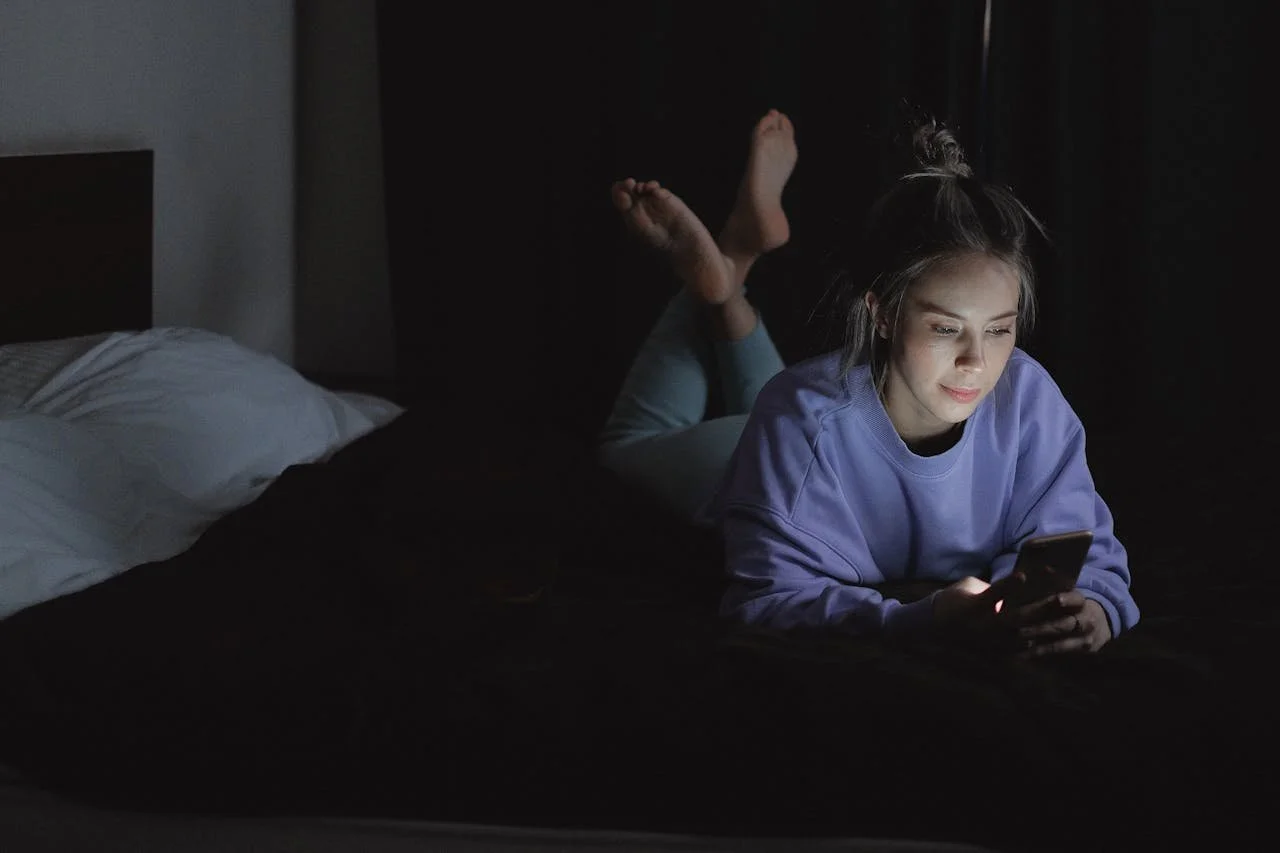Why Bedtime Screen Habits Could Be Fueling Emotional Struggles in Adolescents
In today’s digital world, we are constantly surrounded by screens and devices. Smartphones, tablets, and laptops have become a standard part of everyday life.
For adolescents, devices are not used solely for entertainment purposes. Add in digital learning and maintaining social connections. With that integration into all aspects of life, there is a growing trend of screen time leading up to and at bedtime.
This is causing concern among healthcare professionals, teachers, and parents alike. All for a legitimate reason. These screen time habits are affecting sleep patterns, mental health, and everything in between.
The Sleep-Emotion Connection
When you think of sleep deprivation among teens, you may think of the physical aspects. They are tired, they have lower energy levels, and their academic performance suffers. What is less accounted for is the impact it can have on emotional well-being.
This adolescent period is a time of significant brain development and hormonal changes. Their circadian rhythms are naturally shifting to staying up later and wanting to sleep in longer. Hitting that recommended eight to ten hours of sleep each night seems like an impossible challenge.
The late-night screen use is not doing them any favors. Blue light that is emitted from any of these screens causes the suppression of melatonin. This hormone disruption can have a huge impact on initiating sleep, reducing sleep duration, and the overall quality of sleep.
When teens are not getting enough of the deep, restorative sleep, it negatively affects their ability to regulate emotions and manage their high levels of stress. Their everyday challenges can start to feel extremely amplified and unmanageable. Poor sleeping patterns can also lead to an increased risk of developing anxiety, depression, and irritability over time.
The Emotional Toll of High Digital Use
Aside from the screens and blue light themselves, the content that is being consumed right before bed can also impact emotional health. For all of the positives that social media brings, there are associated drawbacks.
It offers a seamless way to connect with others and engage with entertainment. It also exposes teens to cyberbullying, emotionally charged content, and a plethora of unrealistic images for comparison. The late-night scrolling can lead to feelings of inadequacy, exclusion, and anxiety—all while trying to relax for the night.
Constant scrolling of short videos—like reels and TikTok videos—causes rapid dopamine spikes, making the brain crave the stimulation. Even after the screen time ends, the brain remains active while the hormones rebalance. The overstimulation leads to poor sleep and a heightened emotional sensitivity the following day.
Warning Signs to Watch For
Teens are going to have behavioral and emotional shifts during this developmental time, most of which are considered normal for their age. The signs of emotional distress are more subtle, but may include:
Difficulty waking up in the morning
Withdrawal from hobbies or activities of interest
Increased mood swings
Heightened anxiety or sadness
Declining academic performance
If you start to notice any of these behaviors, it may be worth exploring how they are interacting with their screen use—specifically, monitoring their bedtime routines.
Steps You Can Take
One way you can help your teen is to work with them on establishing a healthier bedtime routine. This does not have to mean getting rid of their devices, but setting boundaries around how they choose to use them. There is a healthy balance that can be found.
Establish a digital curfew, aiming to end screen time an hour before their desired bedtime. Look into sleep hygiene practices. Be a role model for them.
In some instances, their emotional struggles may be more deeply rooted and require professional guidance. Teen therapy offers teens a safe space to explore their feelings, develop healthier relationships with their technology use, and build appropriate skills moving forward.
If your teen is showing signs of emotional distress, possibly related to bedtime screen time, reach out and schedule a consultation with us today.

